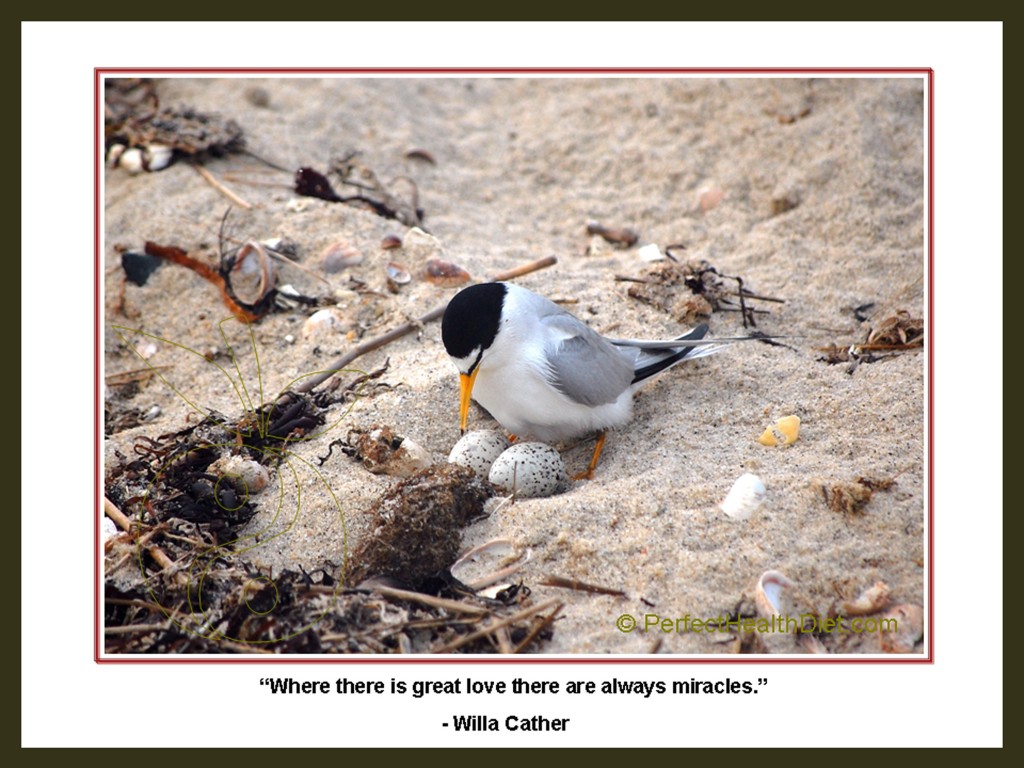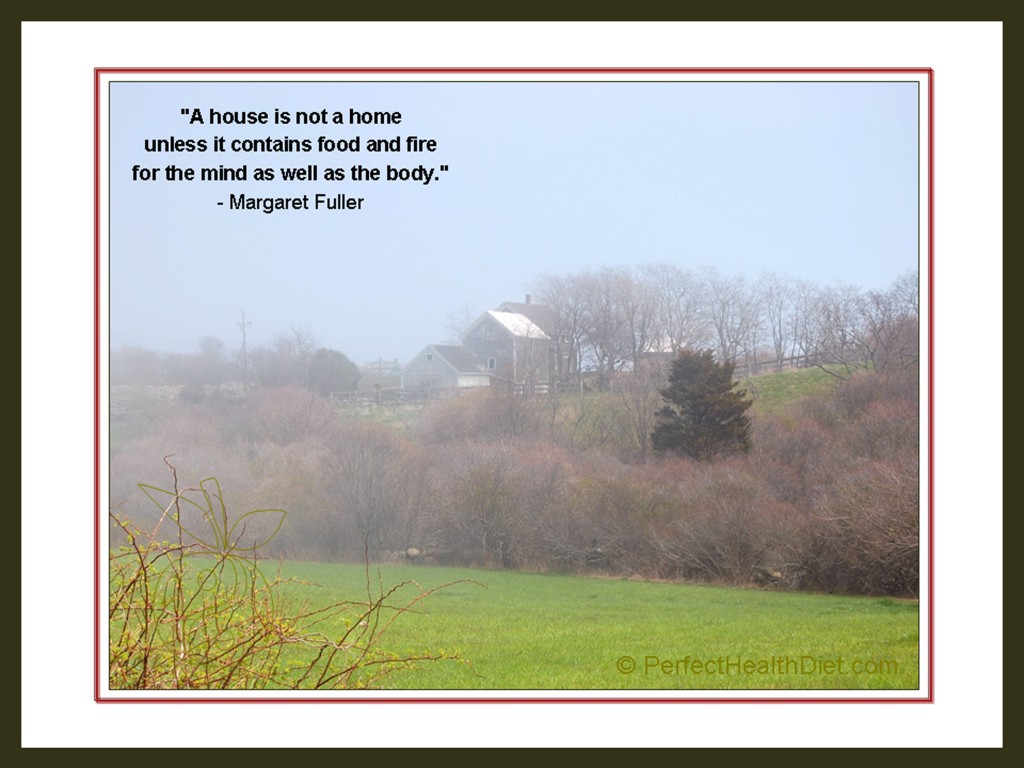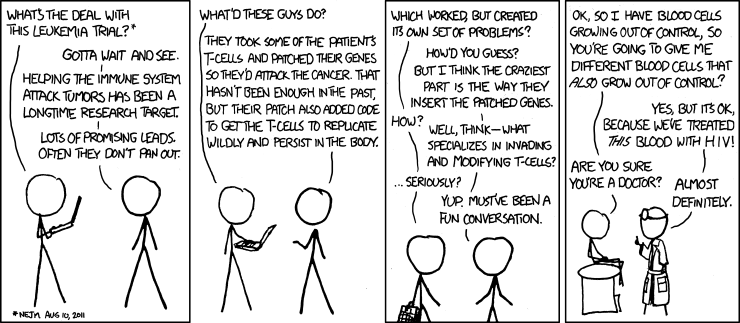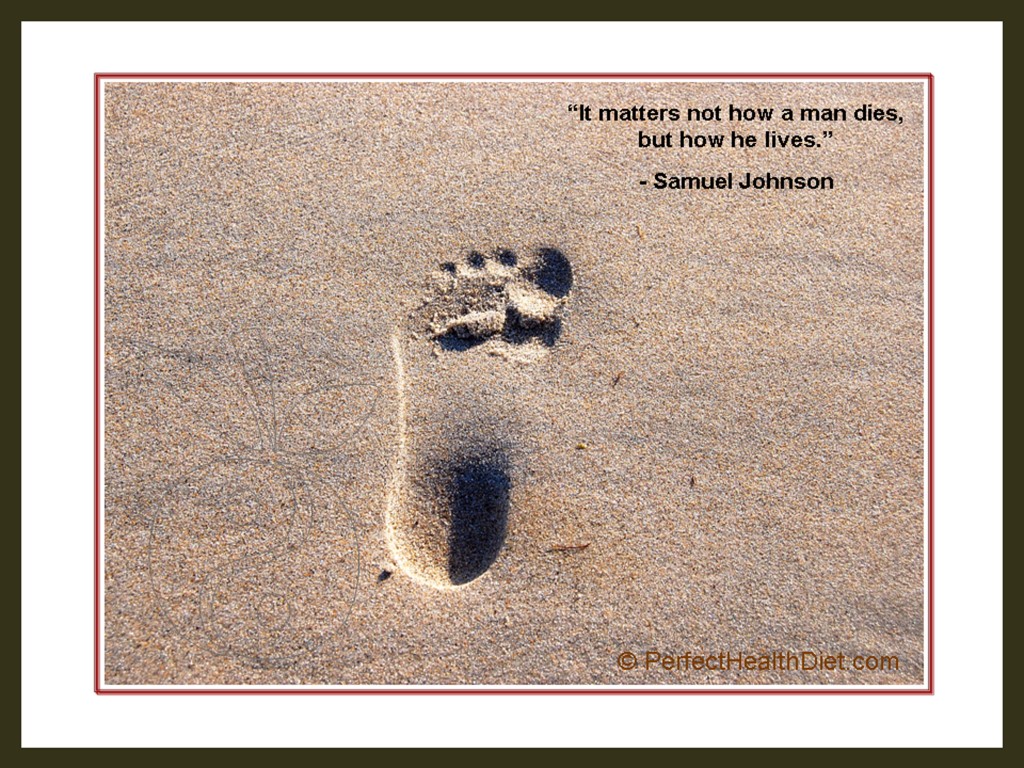Shou-Ching and I will be speaking tomorrow to the Living Paleo in Boston group, at a potluck dinner hosted by Amit and Shilpi Mehta, on the topic of “Common Pitfalls of Paleo.” We’re excited to meet everyone. Kamal Patel has already promised a question about “the philosophical and emotional aspects of glycogen.”
Also, Paul will be appearing on Patrick Timpone’s The Morning Show on Thursday, Oct 13, at 11 am EST/10 am CST.
[1] Book Reviews and Cures: Several mentions of our book came to our attention this week:
Larry Carter of Dan’s Plan included us in his “Five Slightly Different Flavors of the Paleo Diet.” (The other flavors: Cordain, Wolf, de Vany, and Sisson.)
Steve Omohundro called our book, “My favorite reference … I’ve read it twice and am still learning lots from it.”
Sean at Prague Stepchild offered kind words:
What’s cool about this book is that it is sort of the health aficionado’s health book, yet at the same time extremely accessible. So accessible that my wife has pretty much been monopolizing it since it arrived more than a month ago. This is especially notable because my wife’s native language is Czech, and while her English is excellent, she’s not crazy about reading books in English. In fact she just plain doesn’t do it.
Jennifer Fulwiler of Conversion Diaries gives the best review ever:
I love the subject of nutrition. My fascination with it began when I was 18, and for the past 16 years I’ve read tons of books on the subject, from pop diet paperbacks to heavy textbooks…. I have found a book that is head and shoulders above everything else I’ve ever read on the subject … It’s called The Perfect Health Diet, and it is awesome. (To give you an idea how good it is, I stayed up late reading it in the hospital the night after the baby was born because I couldn’t put it down!)
There you go: We keep moms awake even better than their newborns!
Gratifyingly, a couple of cures were reported on the constipation thread. First, Anna:
I’m so grateful to you for this information. I’ve been suffering for weeks but I took the recommended supplements and did nothing else — and experienced relief the second day. In a world full of useless and confusing information, having a good source is such a godsend. Thank you for all that you do.
Then, Vincent reported his constipation is almost cured with our anti-fungal diet:
After a few weeks of little improvement, I experienced my first normal bowel movement in a long time (years?). After more changes to my regimen, I now have normal stools on most days. The greatest improvements coincided with the times I added fermented tubers and (later) ThreeLac. I also think that cranberries, turmeric, increased amounts of safe starches, the Now Foods anti-fungal, and removal of my beloved coconut oil were all quite helpful. My victory is not complete — I still get diarrhea fairly easily and the occasional hard stool — but the improvement is incredible.
Many thanks, Paul, for helping me fix a problem that has plagued me for a long time. I wish you, Shou-Ching, and all your readers the great health and happiness you deserve.
Sincerely,
Vincent
Our sincere thanks to everyone who reports results. It’s such a pleasure to hear from you!
[2] My Research for Kamal’s Question:
Via Andrew Day on Facebook.
[3] Interesting Items This Week: Kurt Harris is one of the most respected authorities in the Paleo movement, and Jimmy Moore asked his thoughts on our advice to eat a certain amount of “safe starches.” Kurt’s discussion is excellent. His diet advice is essentially identical to ours, although the reasoning by which we reach our conclusions differs in a few respects.
Over at Dallas and Melissa Hartwig’s blog, a great “Whole9 success story”: How Jessica O cured trichotillomania and seizures with a Paleo diet.
Beth Mazur explains why she’s the Weight Maven (“A Maven is someone who wants to solve other people’s problems, generally by solving his own.”) and links to a cool cartoon showing the significance of a Ph.D.
Robb Wolf backs ever so slightly away from low-carb: “In years gone by I’d have staunchly recommended a low carb paleo diet as THE best intervention but I can’t in good faith recommend that anymore.”
Perhaps he was influenced by this study. Bix at Fanatic Cook passes on results from a large population-based study (27,140 participants) in Sweden:
- A high-protein intake was associated with an increased risk for type 2 diabetes.
- Replacing protein with carbohydrate … was associated with a lower risk for type 2 diabetes.
Stephan Guyenet is starting a series on the mechanisms underlying food reward. I think this is much needed, and I’m in the group he’s targeting (“skeptics” and “scientifically inclined people who want mechanism”). (Note: I’m not skeptical that food reward exists, or that addictive-like wanting is an important factor in many cases of obesity. I’m skeptical over the origins of addictive-like wanting, and over the universality and importance of this factor – whether it is the cause, or a symptom; whether bland food is curative, or merely a means of symptomatic relief. I’m wondering whether there will be compliance to an unrewarding diet.)
Peter at Hyperlipid conducts a trial to prove that chocolate is more rewarding than bananas. On another thread at Peter’s, Jenny Ruhl points out an interesting fact about obesity and diabetes:
The number of people with diabetes in the overall population stays fairly close to 9% but the number of obese and insulin resistant people keeps growing to where it is somewhere between 1/2 and 2/3rds of all older adults.
So whatever is causing the obesity epidemic, it doesn’t promote diabetes.
Stan the Heretic gives us a study from Sweden claiming that gene expression is optimized on a 1/3 carb 1/3 fat 1/3 protein diet:
“Both low-carb and high-carb diets are wrong,” says Johansen. “But a low-carb diet is closer to the right diet. A healthy diet shouldn’t be made up of more than one-third carbohydrates (up to 40 per cent of calories) in each meal, otherwise we stimulate our genes to initiate the activity that creates inflammation in the body.”
Dr. Briffa discusses a study showing that B12 deficiency is linked with brain shrinkage in later life.
Chris Masterjohn shows evidence that dietary protein protects against cancer by raising glutathione levels.
Via Julianne Taylor on Twitter, CoQ10 maintains fertility in older women.
ScienceDaily links to a new Nature paper showing that fat cells in obese people store fats more easily and shed fats less easily than fat cells in normal people. A study author says “this is the first time that someone has demonstrated that the metabolism of fat in the fat cells differs between healthy and obese individuals.” If something so basic had never been demonstrated, it’s no wonder the blogosphere can’t agree on what causes obesity.
More manipulation of mammals by germs: From The Scientist, A Lactobacillus rhamnosus strain reduces anxiety and depression in mice, and may do the same in people, according to a new paper in PNAS.
While fermentation of vegetables produces very healthful foods, fermentation of meat tends to culture germs that can digest us, and is a very risky activity. Melissa McEwen points out that the lore of how to do it safely has largely been lost.
Wired.com has some neat graphics on the gut microbiome. Most striking to me was this chart of how long it takes people who don’t eat kimchi to refresh their gut flora:
[4] More music: We’re so classy, classical music isn’t good enough unless wine glasses are involved. Here’s Bach’s Toccata and fugue in D minor:
[5] The 2011 Ig Nobel Prize for Medicine has been awarded: For demonstrating that people make better decisions about some kinds of things, but worse decisions about other kinds of things, when they have a strong urge to urinate.
Via Peter Klein.
[6] Cute animal photo: From Logan Pass, Glacier National Park, Montana:
Via EarthPorn by way of Lance Strish.
[7] Best Comments This Week (not about constipation):
Jana had a great comment on the relentless pressure on cancer patients to be “upbeat,” and the harm it may do.
Majkinetor guides us to a paper showing that a maternal protein-deficient diet can promote high blood pressure and impaired glucose metabolism in offspring, but that this effect can be rescued by folate supplementation. Vitamins B6, B12, and choline are even better.
Lance Strish had a very informative discussion of toxicity from AGEs and ALEs.
[8] Shou-Ching’s Photo Art:
[9] “Little Miss Muscle”: Was spindly 7th-grader April Atkins the world’s strongest teenager?
Via Instapundit.


























Recent Comments